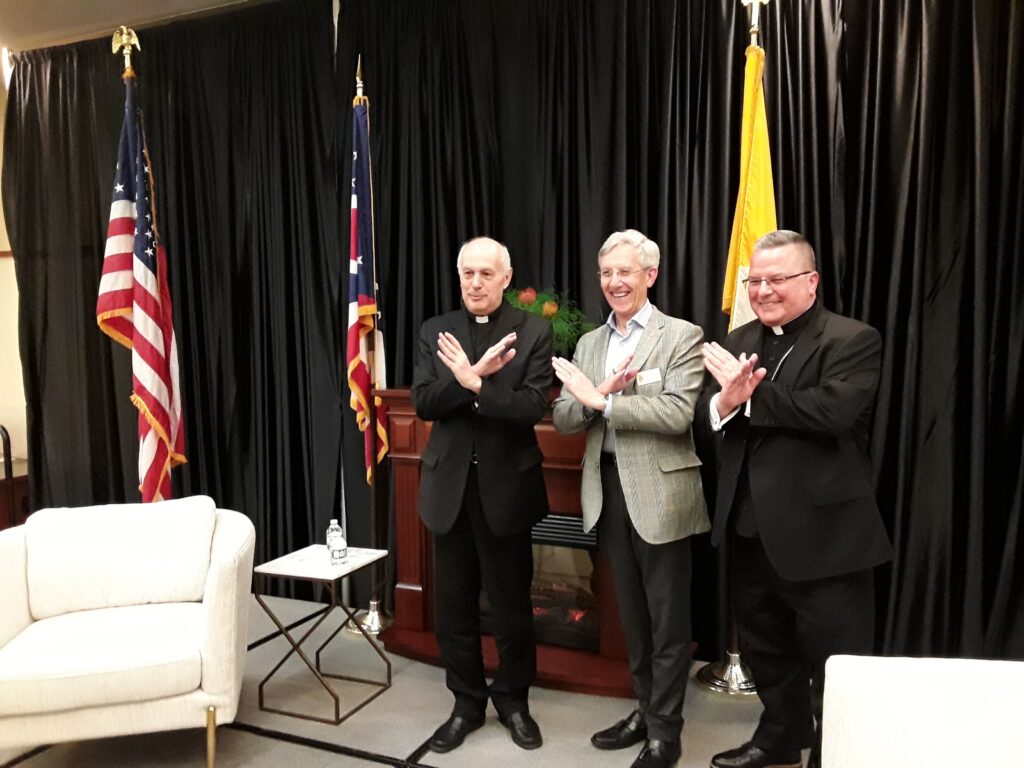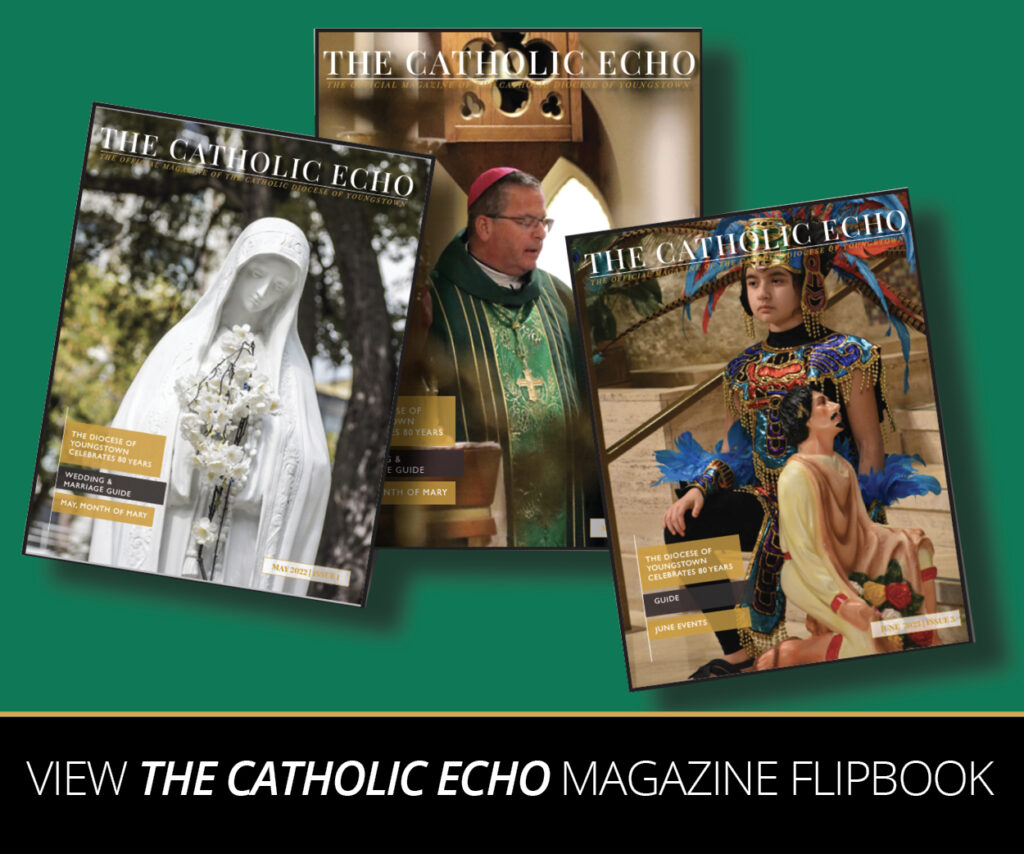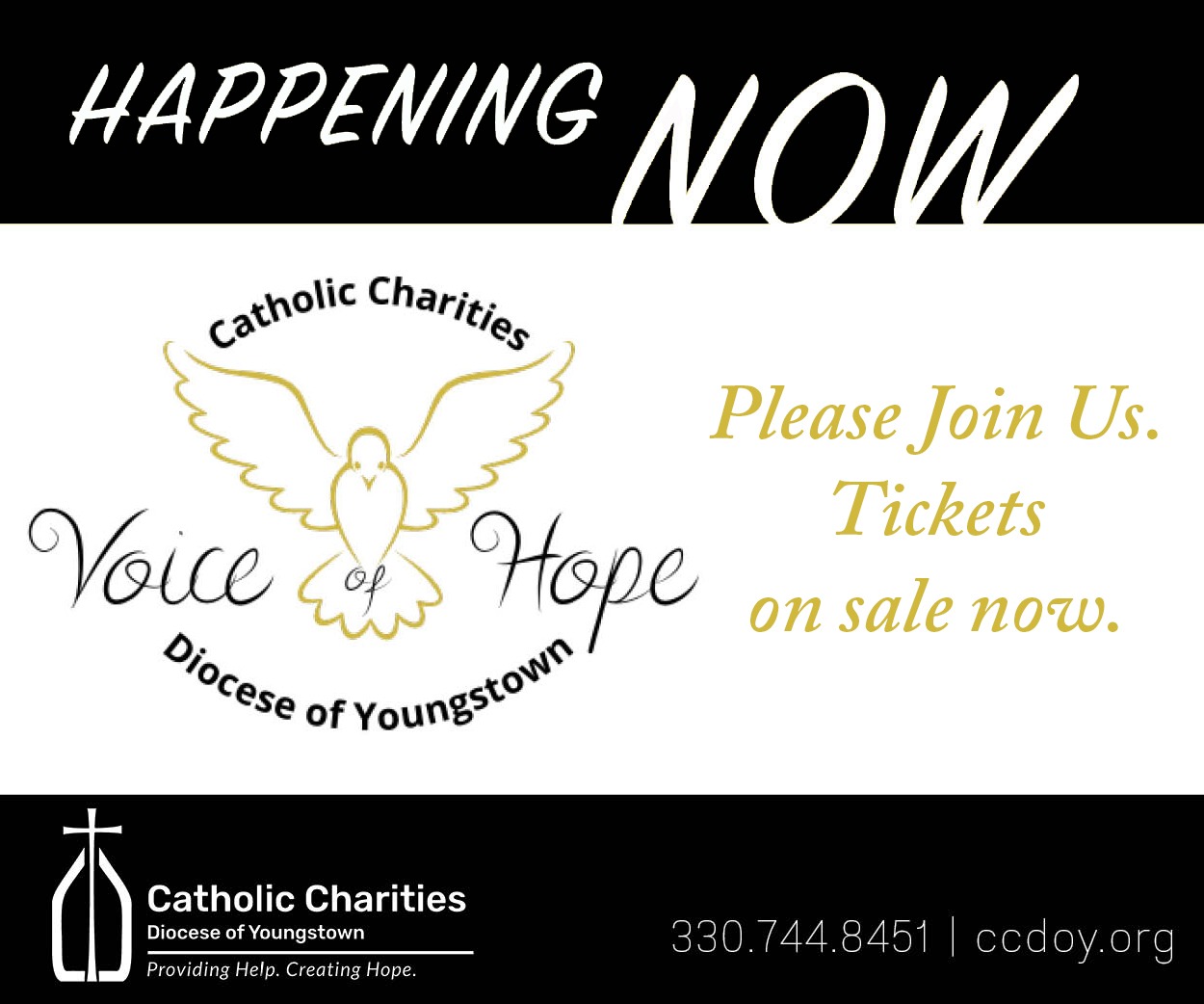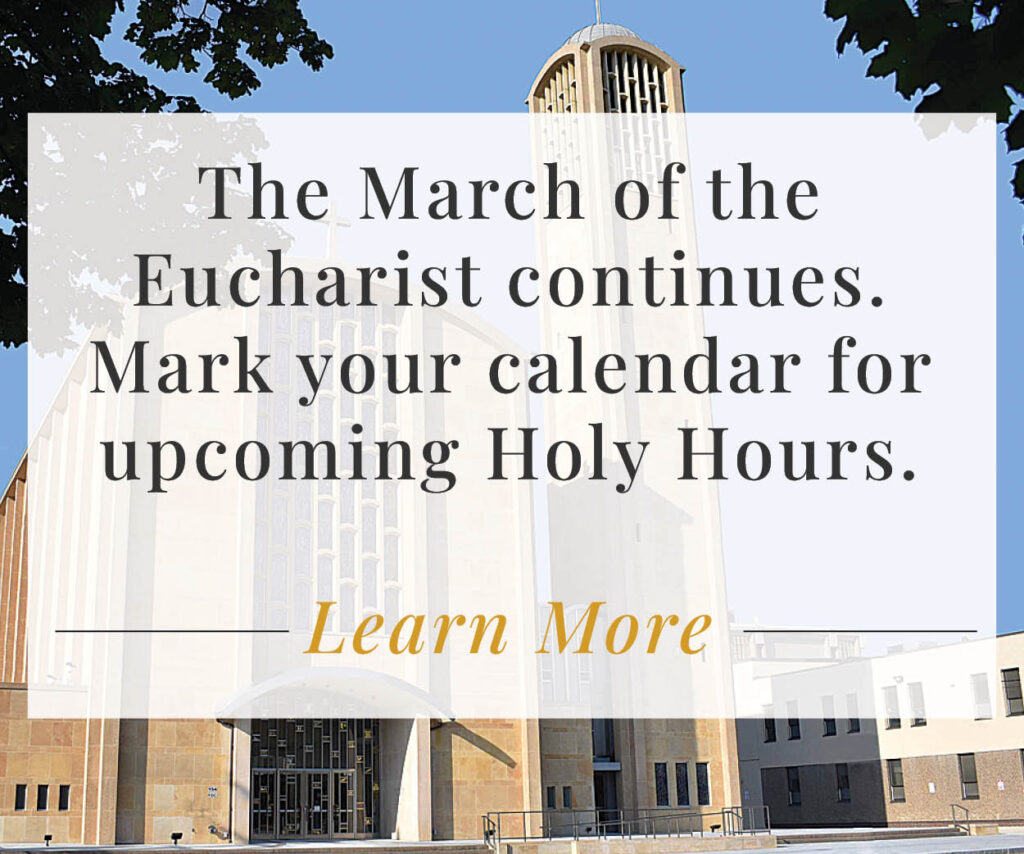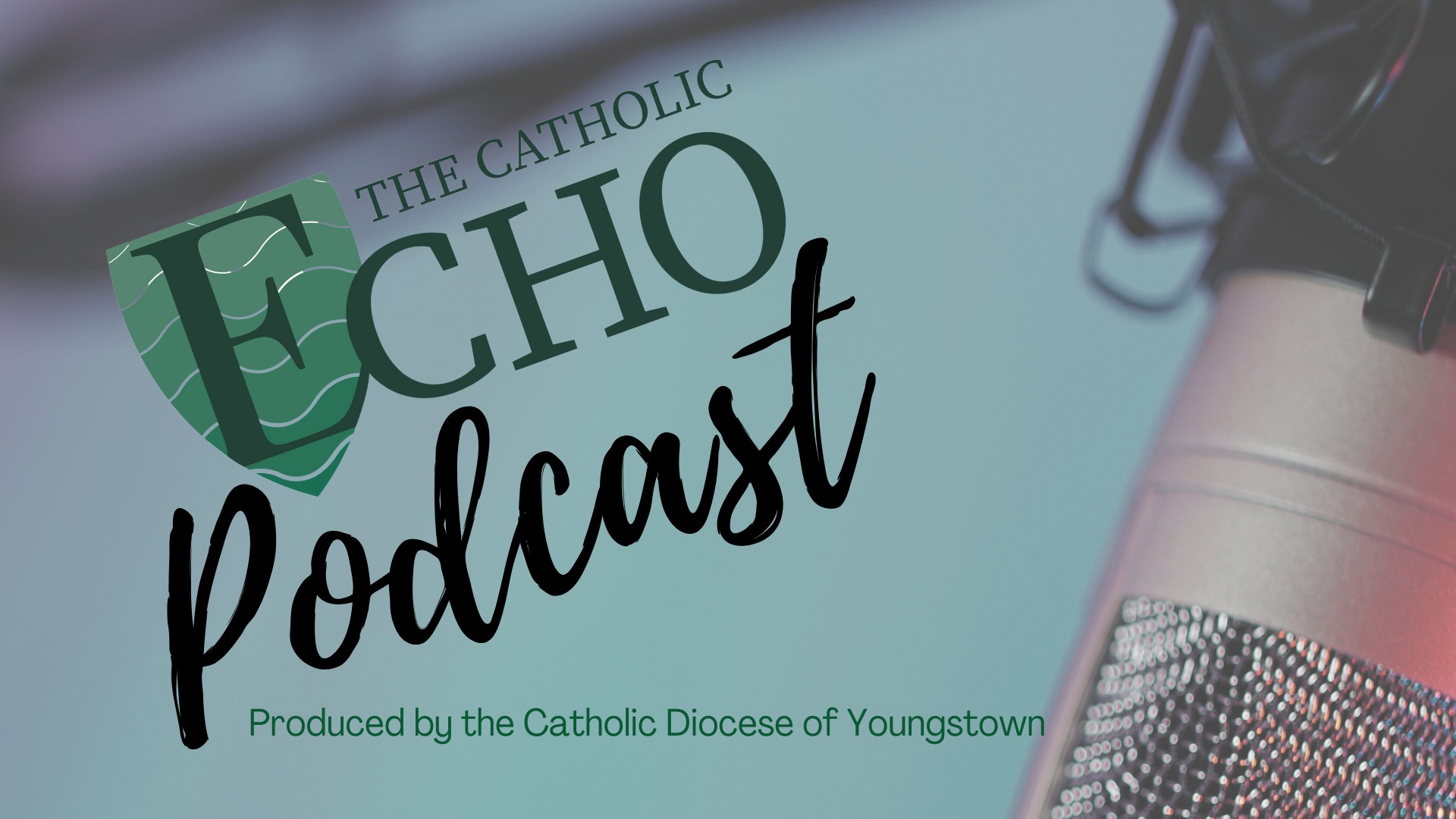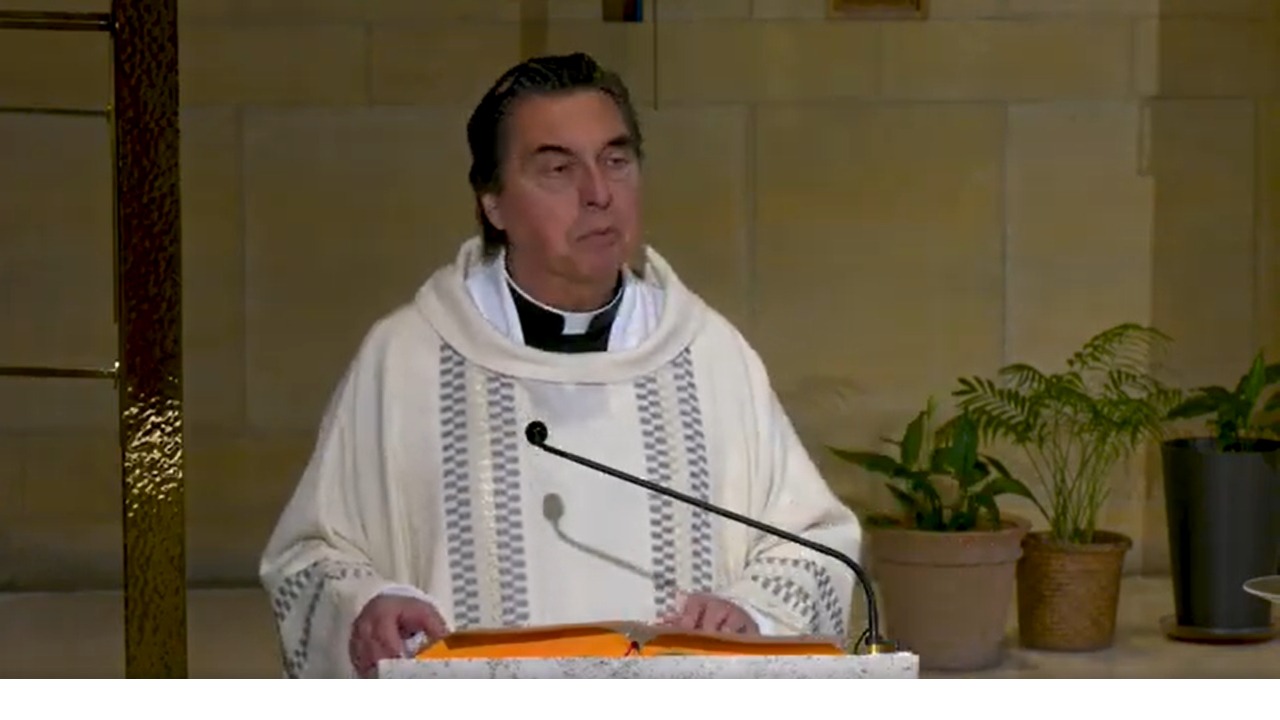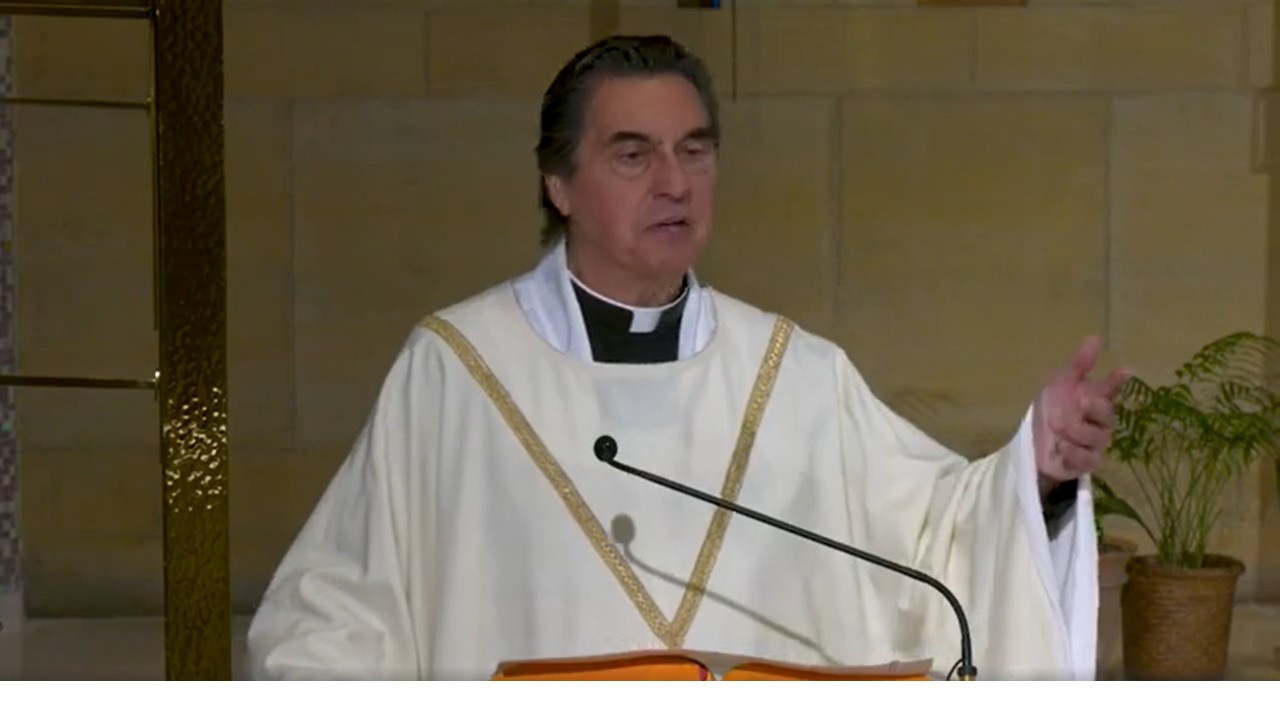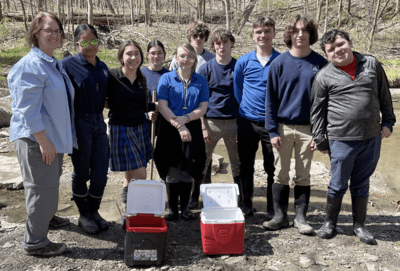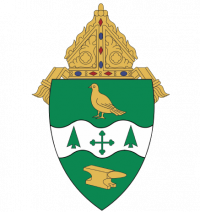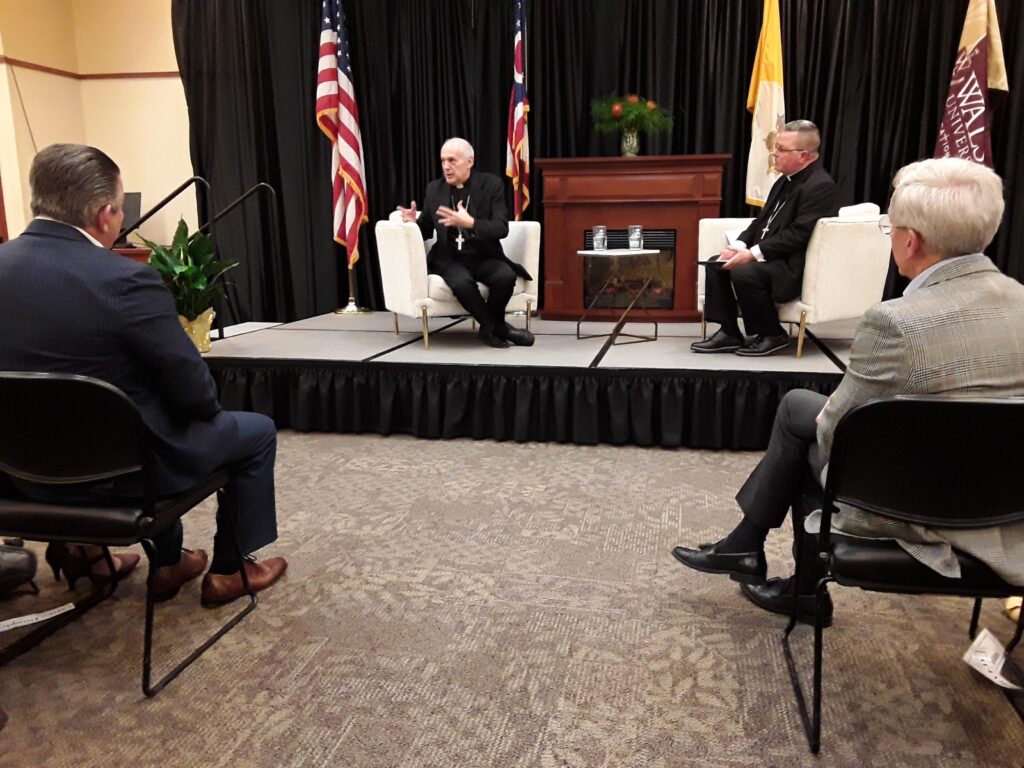
There are many perspectives on how to best promote the “national interest” of the United States, but for Archbishop Gabriele Caccia, permanent observer of the Holy See to the United Nations, the only national interest should be promoting humanity.
Archbishop Caccia was the guest at Walsh University’s recent fireside chat, which was moderated by Youngstown Bishop David Bonnar. His topic was “Diplomacy in the Church and Why It Matters.”
He said he and the other permanent observer are not voting members of the United Nations, so they stay out of the political arena. Their job is to be a “moral voice” and “support what makes sense and sounds good for humanity.”
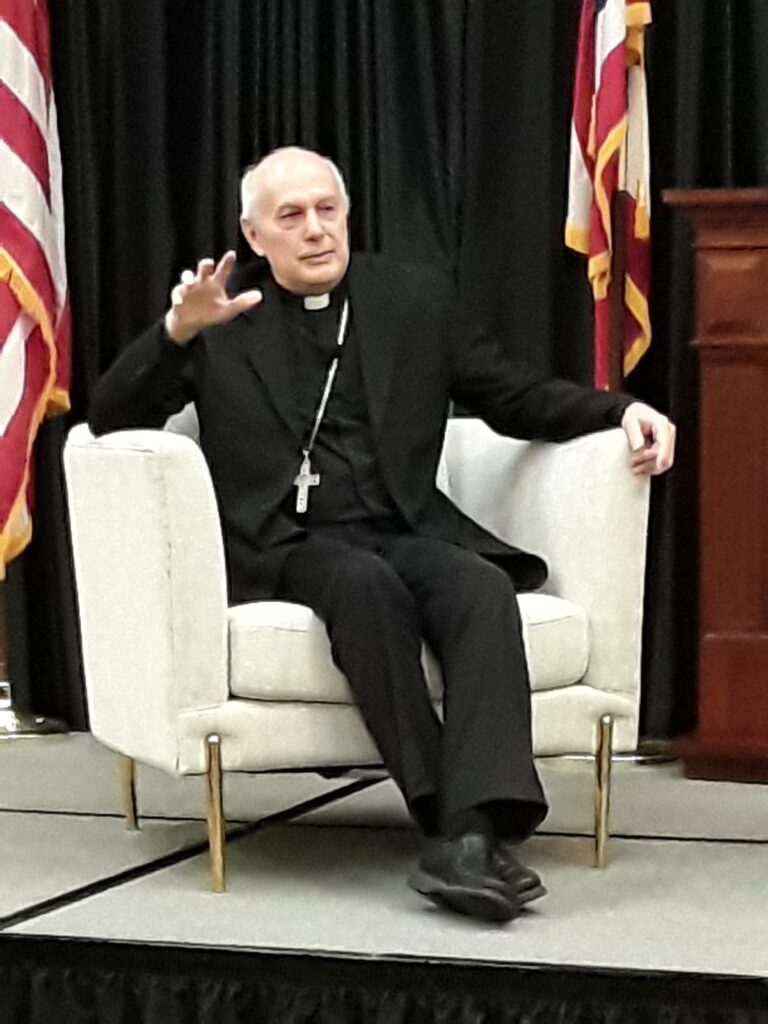
Archbishop Caccia has been at the United Nations in New York City since 2020. He began his talk by acknowledging that the 19th anniversary of the death of Pope Saint john Paul II had just occurred the day before. He said Pope John Paul II was the first non-Italian pope and the first—and still only—pope from a Slavic nation.
“This created an earthquake,” Archbishop Caccia said, noting that under John Paul II’s pontificate, the world saw the end of the Soviet Union “with no bloodshed.”
“This shows how something that seems ecclesiastical has an effect on the entire world, for both Catholics and non-Catholics,” he said.
Archbishop Caccia said he entered the seminary at the age of 14, partially because of the influence of the local priest who stayed at the community campus in his small town in Italy. He said it was while in the seminary that he discovered that “God was real and not just an idea.”
He said he got the call to become a bishop while working as Secretary of State at the Vatican.
“I was 300 steps away from the pope,” Archbishop Caccia said.
He said he chose to become a priest, but that was the only decision he has made since being ordained.
“None of us decided to be diplomats. A bishop from the Vatican called and said I was needed for diplomatic service. So I went to Rome for school and learned some skills that I would need,” Archbishop Caccia said. “But the real preparation came from everyday life and being able to interact with others. No school can train you for that.”
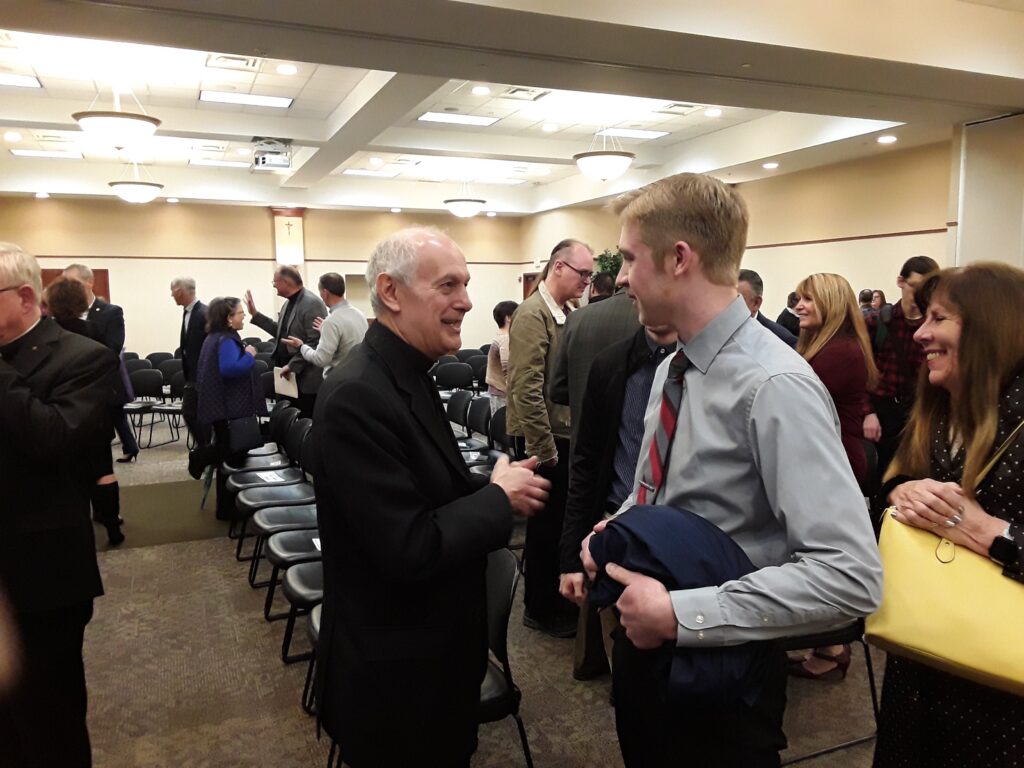
He said in order to understand how the job of a diplomat came about, one has to look into history. He said each European state sent an ambassador to Rome and the pope sent representatives to other countries. The Vatican city / state was created in 1929 with the pope, or Holy See, as its head and the Curia as its “cabinet.”
“The Vatican is a symbolic reality that allows the pope to be recognized as an independent body. The pope is the bishop of Rome and the Catholic faithful could have said ‘the pope should be Italian.’ And that is how it was until John Paul II was appointed. And since then, we have had two other non-Italian popes in Benedict and Francis,” Archbishop Caccia said.
Bishop Bonnar asked him to explain his job as papal nuncio for the United Nations.
Archbishop Caccia said the United Nations was created in 1945 after World War II. It has four tenets, which are like the four legs of a chair: To work for peace, promote human rights, work for development to make the world a better place and respect the rule of law.
“The number one reason nations go to war is because of a disparity between them, so we should always work to promote solidarity,” he said.
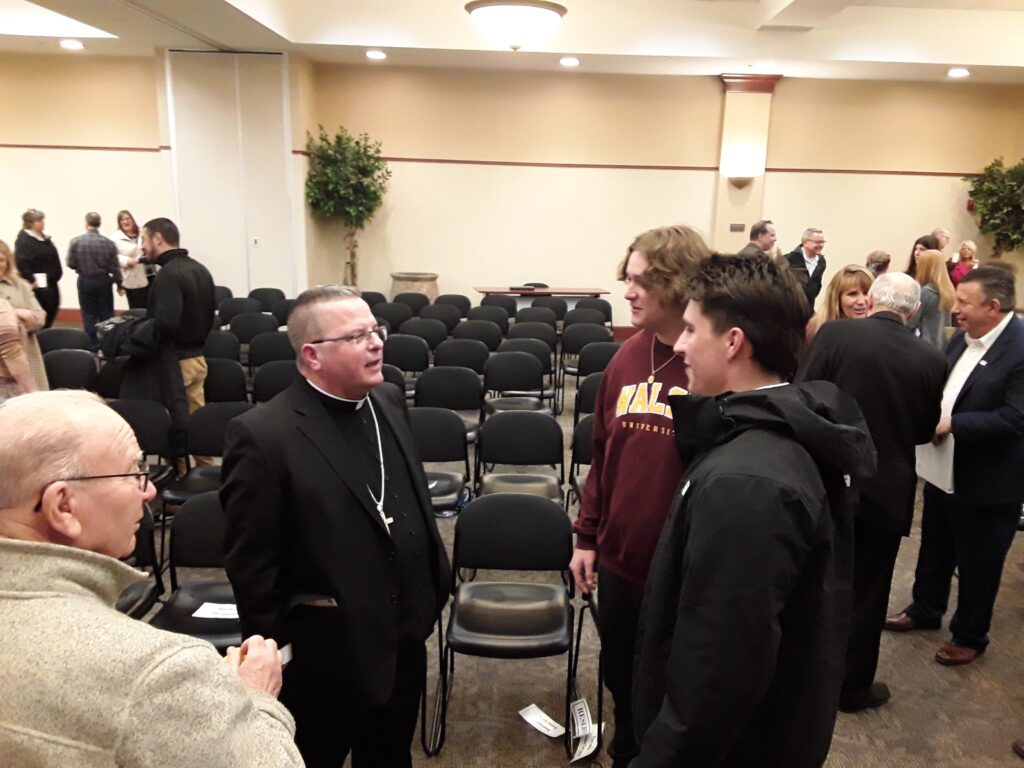
On the 70th anniversary of the creation of the UN in 2015, the governmental body created the 2030 Agenda for Sustainable Development, which has 17 goals and 169 targets. According to the UN website, there are five areas of critical importance:
- People: Ending poverty and hunger in all their forms and ensuring there is water for everyone.
- Planet: Protecting the planet from degradation, including through sustainable consumption and production, sustainably managing natural resources and taking urgent action on climate change.
- Prosperity: Ensuring that all human beings can enjoy prosperous and fulfilling lives and that economic, social and technological progress occurs in harmony with nature.
- Peace: Fostering peaceful, just and inclusive societies that are free from fear and violence, including the elimination of nuclear weapons and testing of nuclear weapons.
- Partnership: Mobilizing the means required to implement this agenda through a global partnership for sustainable development based on a spirit of strengthened global solidarity focused in particular on the needs of the poorest and most vulnerable with participation of all countries, all stakeholders and all people.
Archbishop Caccia said one of the main goals of the United Nations is dealing with global emergencies such as the wars in Gaza and Ukraine, and atrocities such as in South Sudan and Rwanda. He explained that there are 193 state members and two observers: one from the Holy See and a Palestinian official.
The UN General Assembly makes resolutions that should guide the political actions of each member, but these resolutions are non-binding. There are five permanent members who make up the 15-member UN Security Council: United States, United Kingdom, China, France and Russia. The Security Council members serve on a two-year rotating basis, except the five permanent members. The Security Council creates resolutions that are binding and nine votes are needed to pass laws. The five permanent members have veto power and if they veto legislation, in 10 days, they have to go before the General Assembly and explain why they vetoed.
Archbishop Caccia said as an observer, he takes part in the discussions of the General Assembly and the Security Council, but does not vote.
“The situations in Gaza and Ukraine test the effectiveness of the Security Council. The United Nations can’t solve these problems because major political actors are not ready to sit at the table and come up with a non-military solution,” he said. “Some wars are not fought on the battlefield, but on papers inside the United Nations. We have to find other ways to solve problems besides military force. The UN is working on it, along with addressing climate change and nuclear disarmament, but we have a long way to go.”
Bishop Bonnar asked the archbishop for a concrete example of God’s kingdom at work with the United Nations.
“The fact that 193 countries can come together to talk and come together in a permanent way gives us hope for the common good of humanity. God’s presence is always there as talks take place,” Archbishop Caccia said. “Serving the good of humanity is the mission of both the UN and the Catholic Church.”
Walsh University President Dr. Tim Collins said the college was founded on the principles of serving Christ and feeding human intellect. He said the fireside chats are aimed at “vigorous intelligent discussion” that are enlivened by a sense of community, infused with a Catholic world view and sustained by Gospel witness.
“These talks are aimed at helping us grow and become better human beings and a way to address the wicked hard problems that confront us each day,” Collins said.
